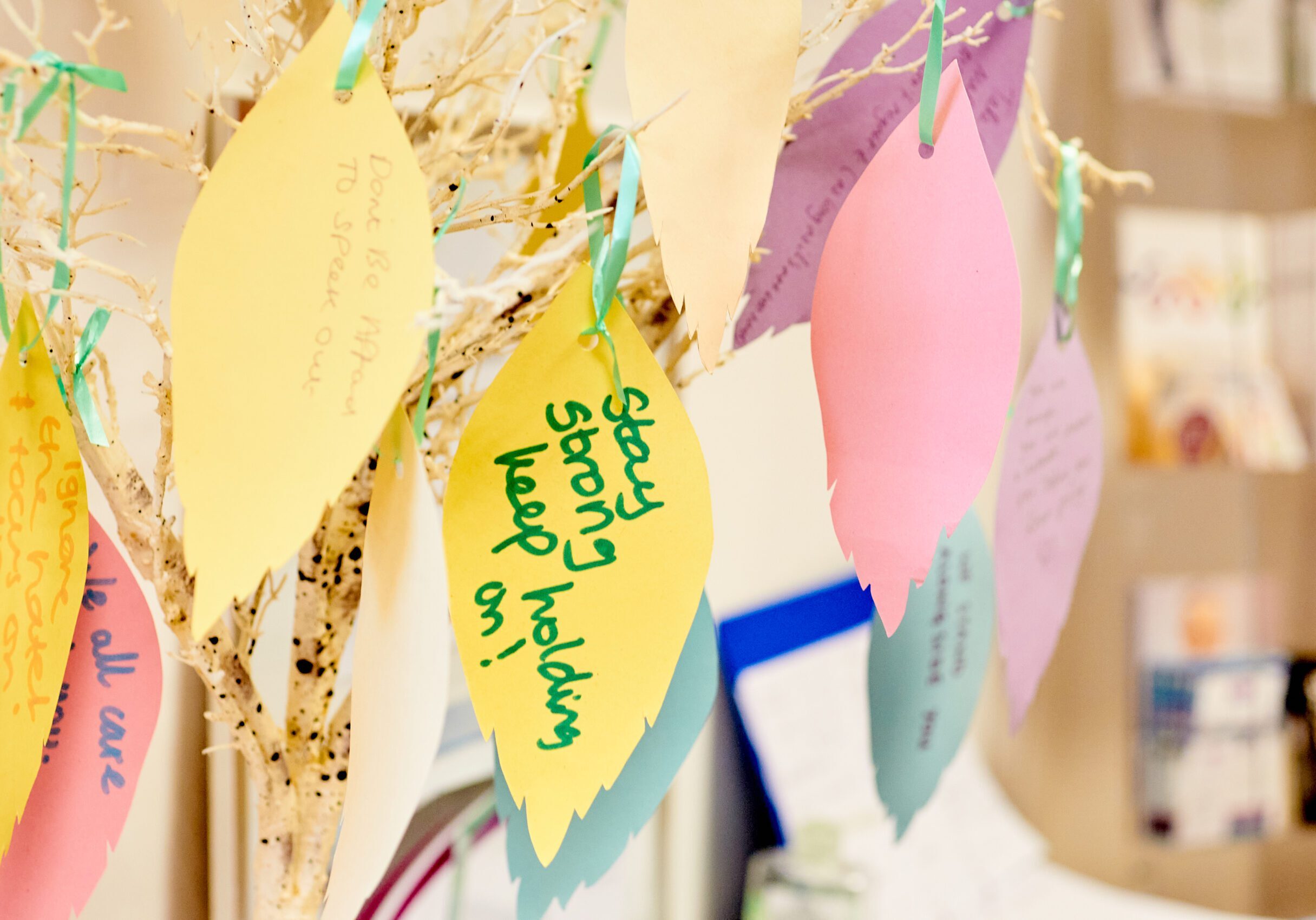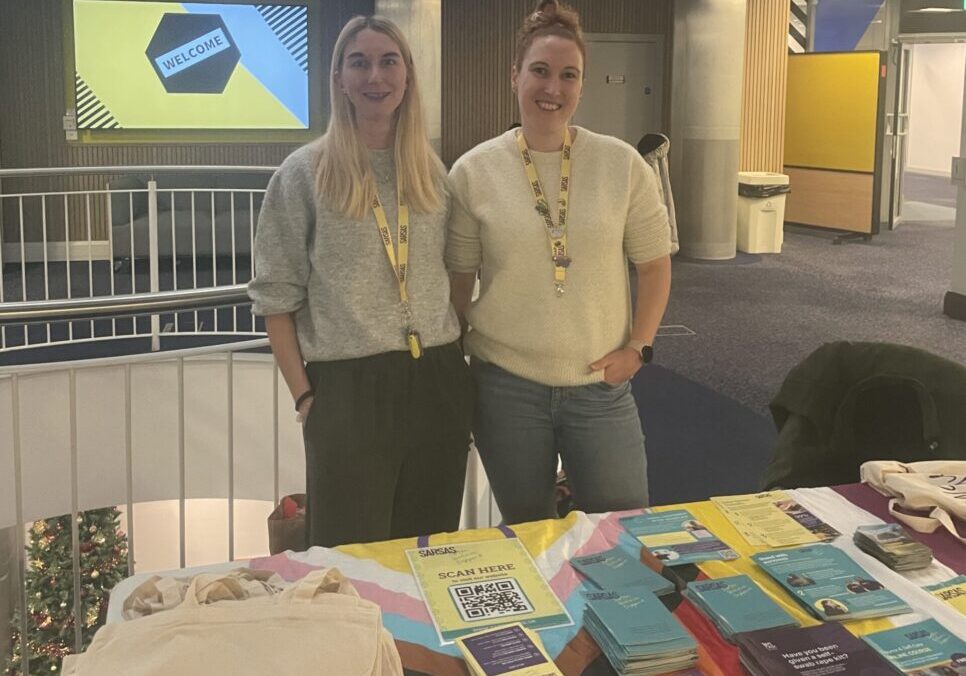
Joint advice on getting help after rape and sexual assault and the use of self-swab kits
If you or someone you know has been raped or sexually assaulted, there is support available from organisations in Bristol and throughout Avon and Somerset.
They will never tell you what you should do, but will help you think about your options.
They will listen and believe you.
You will be cared for in a place where you are safe.
“The staff were really reassuring and made sure I felt safe and comfortable at all times. I felt really nervous coming in and they constantly checked that I was okay and that my needs were being met. Really grateful for their help and support.”
Sexual Assault Referral Centre (SARC) Client
If you have been raped or sexually assaulted, you can contact your nearest NHS sexual assault referral centre (SARC) for free, specialist care and support in a safe space.
You can get help from a SARC without having to talk to the police or report what happened to you – your consent is everything, at every stage.
If you have been raped or sexually assaulted within the last seven days, you will be offered a forensic medical examination. This is where a doctor or nurse collects evidence, including swabs, from your body and clothes.
It is your choice whether to have a forensic medical examination and having one doesn’t mean you have to report to the police.
If you decide to have a forensic medical examination, the SARC will ensure that any evidence gathered follows the national guidance for collection, movement and storage of DNA evidence.
A SARC will not ask you to use a self-swab kit as part of a forensic medical examination.
If you’re not sure about reporting to the police, you can have the examination and the evidence can be safely stored, giving you time to think about what you decide to do.
If you decide to report to the police in the future, this evidence can be shared with them.
Preserving evidence: what you need to know
When you contact the SARC, they will give you advice on what you can do to help preserve evidence before a forensic medical examination.
It is recommended that you do not take a swab yourself, as this could impact the ability of the SARC to capture a DNA sample and provide the required evidence to the police. You can read about the risks of doing this in a joint position statement on self-swabbing kits, which has been published by the Faculty of Forensic and Legal Medicine.
Facts about The Bridge (the SARC for Avon and Somerset)
- You can contact the SARC yourself and do not need to report to anyone else if you don’t want to.
The Bridge offers free and confidential advice
on 0117 342 6999, 24/7, 365 days a year
- You will be offered choice about what you want to do next. If you decide to have a forensic medical examination, you will be offered a choice of the gender of the person who conducts the examination. You will also have a crisis worker who will support you at all times, before, during and after a forensic medical examination.
- There is an opportunity to gather forensic evidence, including DNA, for up to seven days after being raped or sexual assaulted.
- The Bridge can advise and support you with any health needs and concerns, including emergency contraception and sexually transmitted infection prevention.
- The team can also make sure you receive appropriate care for any physical injuries.
- If you choose not to report to the police, you have the option of making an ‘anonymous report’ at The Bridge. This information can be logged by the police, without knowing your name or any other identifying information. Some people find this helpful.
- The team at The Bridge are specialists in their field and are trained to provide trauma-informed support to anyone of any age or gender who has been raped, sexually assaulted or abused.
- The SARC will never share your data and personal information with anyone else without your consent, unless we believe that either you or someone else is at risk of significant harm.
- The Bridge can help you access other local, free, specialist services such as Independent Sexual Violence Advisors (ISVAs), counselling and emotional support. These services are available to anyone, regardless of whether you have reported to the police. Details of these services can be found on the Survivor Pathway.
This joint statement is supported by the following organisations:
Avon and Somerset Office of the Police and Crime Commissioner; The Bridge Sexual Assault Referral Centre; Bristol City Council; Bristol Nights; The Green House; Kinergy; The Nelson Trust; NHS England; Safelink; SARSAS; The Southmead Project; University Hospitals Bristol and Weston NHS Foundation Trust; Womankind.
“People leave here with hope.”
The Bridge SARC Team





